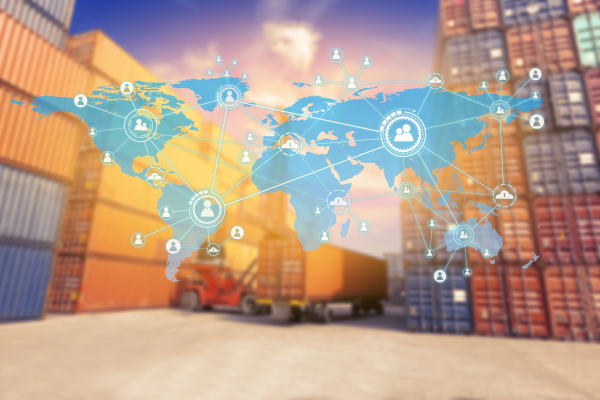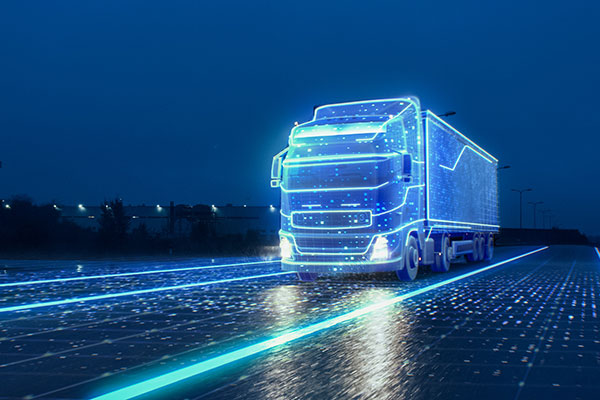AI Simulation Helps Supply Chains Predict the Future
Technology allows for predictive and what-if scenario planning
Supply chains today are more complex than ever before. Disruptions created by material shortages, climate disasters, and geopolitical tensions have added to an already complicated process, leaving logistics professionals searching for alternatives. In fact, a recent study from Germany found that 65% of all companies in the logistics sector report that they have suffered financial losses due to supply chain disruptions.
Artificial intelligence (AI) in particular has emerged as organizations undergo digital transformations in the way they move products, materials, and components across their supply chains. Market research from ZipDo found that 37% of supply chain leaders are either already using AI or planning to deploy it within the next 24 months.
“If you look at AI, 99% of what you see today on the market is one specific type of AI that takes data from the past and learns and tries to create knowledge from this data. And based on this data, you build the knowledge about the possible future demand. You learn from data, and you create knowledge.”
Last month, global business leader Accenture announced it would be expanding its partnership with SAP SE for the creation of a nerve center using AI technology to support supply chain resiliency and sustainability and provide a solution to prevent future disruptions. In addition to cloud technology and analytics, a key component of the nerve center is Cosmo Tech’s Supply Chain Vulnerability Scan, which uses AI simulation to generate all possible outcomes.
What is AI simulation?
AI simulation is a new type of generative AI that can run thousands of simulations automatically to help supply chain managers identify vulnerabilities that will have the greatest impact on their business and weak spots that may cause problems in the future. It looks at the impact of supply chain disruptions and the cascading effect for every supplier and route and runs scenarios based on changes made in these areas.
It is different from other AI models that are based on past data in that AI simulation uses synthetic data to create thousands of possible future scenarios.
“If you look at AI, 99% of what you see today on the market is one specific type of AI that takes data from the past and learns and tries to create knowledge from this data,” said Michel Morvan, Cosmo Tech’s co-founder and executive chairman. “And based on this data, you build the knowledge about the possible future demand. You learn from data, and you create knowledge.”
In contrast, AI simulation is knowledge based, meaning rather than learning from the past or old data, you are creating new knowledge to gain visibility into the future.
“What you really want to do when you make decisions for your supply chain, either a human decision or automatic decision, you need to have visibility on the impact of the decision,” said Morvan. “You need to know what would be the best decision to have such a behavior in the future. With this technology, you can have this visibility.”
By generating new and unknown scenarios, AI simulation is ideal for complex decision-making. It covers the predictive and the “what if” with a level of reliability and explainability that is not possible by using only machine learning techniques. It can also offer supply chain managers prescribed actions that allow them to set their target performance indicators, including supply change, profits, service level agreements, level or production capacity and CO2 emissions, to get the best option out of all possible and probable futures.
“We have this ability to show in a certain way the future or what the future can be so that you can optimize your decisions based on this visibility,” said Morvan.
Article Topics
Accenture News & Resources
What generative AI means for supply chain work Supply Chain Currents Part I: Is there a different way to move freight more effectively? Companies Shifting Away from China a Boon to U.S., Mexico Accenture survey highlights factors that can influence nearshoring decisions AI Simulation Helps Supply Chains Predict the Future Navigating Cultural, Country Differences When Nearshoring Operations Global companies are planning more regional approaches to manufacturing, selling More AccentureLatest in Supply Chain
Is There a Next Generation of Truckers? Data Reveals Grim Outlook A Look at Baltimore’s Key Bridge Collapse—One Month Later European Parliament Passes New Law Requiring Supply Chain Accountability Baltimore Continues Bridge Recovery With Opening of New Channel How Shippers Can Prep for Hurricane Season Apple Accused of Multiple Human Rights Violations South Korea Finally Overtakes China in Goods Exported to U.S. More Supply ChainAbout the Author















